Have you ever felt so in love that your world literally turned upside down?
To be completely and overwhelmingly in love, infatuated, or enthusiastic about someone or something.
English idioms can be puzzling because their literal interpretations often make little sense.

The phrase “head over heels” is widely used to express deep affection or intense enthusiasm, but it can lead to humorous misunderstandings when taken literally.
In this blog, we’ll explore everything about this colorful idiom: its origins, practical examples, similar expressions, and even a quick quiz to reinforce your understanding.
By the end, you’ll confidently use “head over heels” in everyday conversations.
Understanding the Idiom
When someone says they are “head over heels” for something or someone, they mean they are deeply infatuated, strongly attracted, or overwhelmingly enthusiastic.
The phrase conjures up an image of being flipped upside down by powerful emotions—your head ending up where your feet should be.
In essence, it indicates that one’s normal sense of balance or perspective is upended by strong feelings of love, admiration, or excitement.
Sometimes, English learners take “head over heels” literally and imagine someone tumbling through the air. Although it sounds hilarious, it underscores the reason idioms can be so confusing.
They rely on cultural or figurative meanings rather than word-for-word translations. Here, the figurative meaning depicts being so captivated or lovestruck that it feels as though you have lost your equilibrium.
History & Fun Facts
Original Form
Historically, the phrase appeared as “heels over head” in the 14th century. It described a literal physical flip or tumble, such as falling headfirst. Over time, it evolved into the modern version “head over heels,” which is now primarily associated with a feeling of being deeply in love.
Medieval Imagery
In medieval times, if a knight toppled off his horse—armor clanking all around—someone might have described him as going “heels over head.” Gradually, people began using this phrase in a metaphorical sense to describe the topsy-turvy sensation of intense affection.
Cross-Language Appeal
Many languages around the world have comparable idioms expressing a sense of complete infatuation. The universality of love and admiration ensures that every culture finds its own colorful way to say, “I’m so in love that I’m upside down!”
Cultural Twist
In some places, local adaptations of the “head over heels” idea exist. They may substitute other body parts or imagery but capture the same essence of being overwhelmed by emotion. This adaptability reflects how language constantly evolves to meet cultural and emotional needs.
Examples & Anecdotesx
It is easier to grasp the meaning of an idiom by seeing it in everyday scenarios. Here are a few practical examples of using “head over heels” in conversation:
- “Ever since he started his new hobby, he’s been head over heels in love with it. He spends every free moment practicing and never stops talking about it.”
- Explanation: He’s completely absorbed in his new pastime, full of enthusiasm and excitement.
- Explanation: He’s completely absorbed in his new pastime, full of enthusiasm and excitement.
- “I’m head over heels for this city. The culture, the food, the architecture—everything captivates me.”
- Explanation: The speaker has a passionate affection for the city and feels an emotional connection.
- Explanation: The speaker has a passionate affection for the city and feels an emotional connection.
- “She fell head over heels for him after their first date. She can’t stop smiling whenever his name comes up.”
- Explanation: She is deeply attracted and emotionally stirred by him.
- Explanation: She is deeply attracted and emotionally stirred by him.
- “My friend is head over heels about his new car. He washes it every morning and even talks to it like a pet.”
- Explanation: He loves his car to the point of being comically devoted.
A Humorous Misunderstanding
When I first encountered this idiom, I imagined someone literally tumbling over a slice of pizza because they said, “I’m head over heels for pizza!” It took me a minute to understand they were simply emphasizing how much they loved it. This mental image of people flipping over food still makes me chuckle.
Similar Phrases for Love & Enthusiasm
Languages are full of synonyms and related idioms to express the idea of being in deep love or experiencing overwhelming passion. Here are a few that you might find handy:
- Smitten
- Describes someone who is overwhelmingly attracted to another person.
- Example: “He’s been smitten with his coworker ever since they collaborated on a project.”
- Lovestruck
- Implies a sudden and powerful feeling of love.
- Example: “I saw the way she looked at him—she was clearly lovestruck.”
- Infatuated
- Refers to an intense but often short-lived admiration.
- Example: “He’s infatuated with the idea of living abroad, but he hasn’t thought it through.”
Opposite Expressions
Knowing expressions that describe the opposite of being “head over heels” can be just as helpful. Here are some terms that show strong dislike or aversion:
- Hate someone’s guts: Signifies an intense dislike for someone.
- Note: This phrase can sound harsh and is usually reserved for informal speech.
- Loathe someone: Conveys detesting or feeling disgust for someone.
- Example: “He absolutely loathes dishonesty.”
- Detest someone: Highlights a powerful feeling of hatred or revulsion.
- Example: “She detests being lied to and values honesty above all.”
Emotion-Related Idioms
Love is a universal human experience, so it’s no surprise there are countless idioms about it:
- Love is blind: Suggests that when you love someone, you overlook their flaws.
- Anecdote: Some people remain oblivious to glaring issues in a relationship because they’re wearing “love goggles.”
- Wear your heart on your sleeve: Means openly displaying your emotions.
- Example: “He wears his heart on his sleeve, so you always know exactly what he’s feeling.”
- Love at first sight: Describes instantly falling in love upon first meeting.
- Example: “They claim it was love at first sight when they locked eyes in the bookstore.”
These idioms share a core theme: the power of emotion to shape our perceptions and behavior. Mastering them helps you sound more natural and enables you to describe complex emotional states succinctly.
A Short Story
Consider a lighthearted anecdote that ties these ideas together. John was head over heels in love with Mary.
From the moment he met her, he would do just about anything to see her smile—buy flowers, learn her favorite songs on guitar, or spend hours planning the perfect surprises.
Their first date revealed a typical language misunderstanding. John, hearing the phrase “head over heels” for the first time, genuinely thought it referred to someone doing a physical somersault.
Eager to impress Mary, he attempted a flip during a picnic and nearly fell flat on his face. Mary found his clumsy effort so endearing that she laughed until tears rolled down her cheeks.
That moment became a cherished memory, illustrating both John’s devotion and the hilarity that can arise from misinterpreted idioms.
Picture ‘Head Over Heels
Sometimes, a vivid mental picture can help solidify an idiom’s meaning:
- Head and Heels Representation:
- The head symbolizes the mind and logical thinking.
- The heels represent your feet, which usually keep you grounded.
- Emotional Overwhelm:
- Being “head over heels” can imply that your mind and logical judgment are overshadowed by emotion.
- Upside-Down Metaphor:
- You typically stand with your head above your heels.
- Flipping that order illustrates a state where emotions have you turned upside down.
Pop Quiz: Check Your Idiom Skills
Head Over Heels
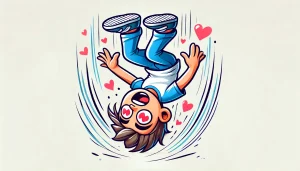
Key Takeaways
- Understanding “Head Over Heels”: It signifies intense love, passion, or enthusiasm.
- Historical Background: Originated as “heels over head” in the 14th century, describing physical tumbles, but evolved into a metaphor for being love-struck.
- Similar Expressions: “Smitten,” “lovestruck,” and “infatuated” capture comparable emotional intensities.
- Opposite Expressions: “Hate someone’s guts,” “loathe someone,” and “detest someone” reflect strong dislike.
- Cultural and Personal Insights: Idioms like “head over heels” enrich conversations and convey nuanced emotions.
By familiarizing yourself with these idioms, you can comfortably participate in discussions about relationships, passions, and strong emotions.
Whether you love a city, a new hobby, or a person, using “head over heels” adds color and depth to your expression. Just make sure not to do actual cartwheels unless you’re truly feeling adventurous!
Conclusion
Embracing idioms like “head over heels” can significantly expand your English vocabulary and cultural insight.
They offer a fascinating window into how language captures human emotions—often in delightfully metaphorical ways.
Rather than simply saying “I love it” or “I’m enthusiastic about it,” you can elevate your conversations with images of being flipped upside down by passion.
As you continue your journey to master English, remember to pay attention to context.
Understanding that “head over heels” does not demand an actual somersault (unless you want to provide a comedic twist) will help you avoid embarrassing mishaps.
Practice these expressions in your daily interactions, and soon they will become second nature. Keep exploring, and don’t hesitate to note down new idioms whenever you encounter them.



Each time you learn an idiom like “head over heels,” you gain a richer perspective on the language and on the universal emotions that connect us all.




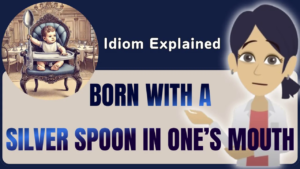
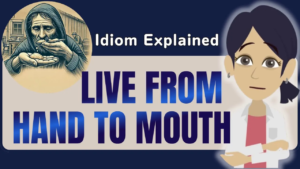
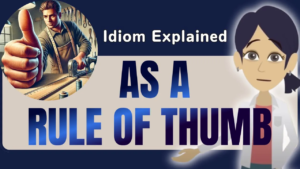
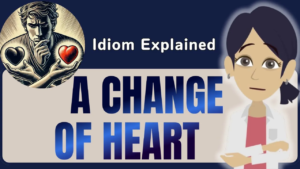

Comment